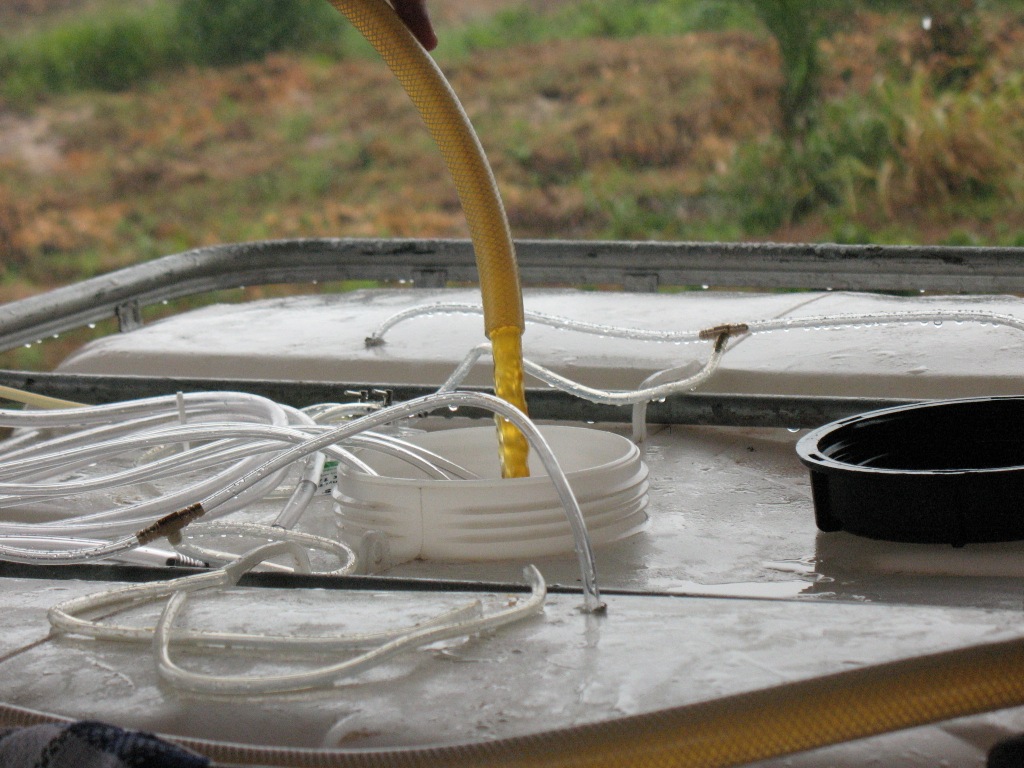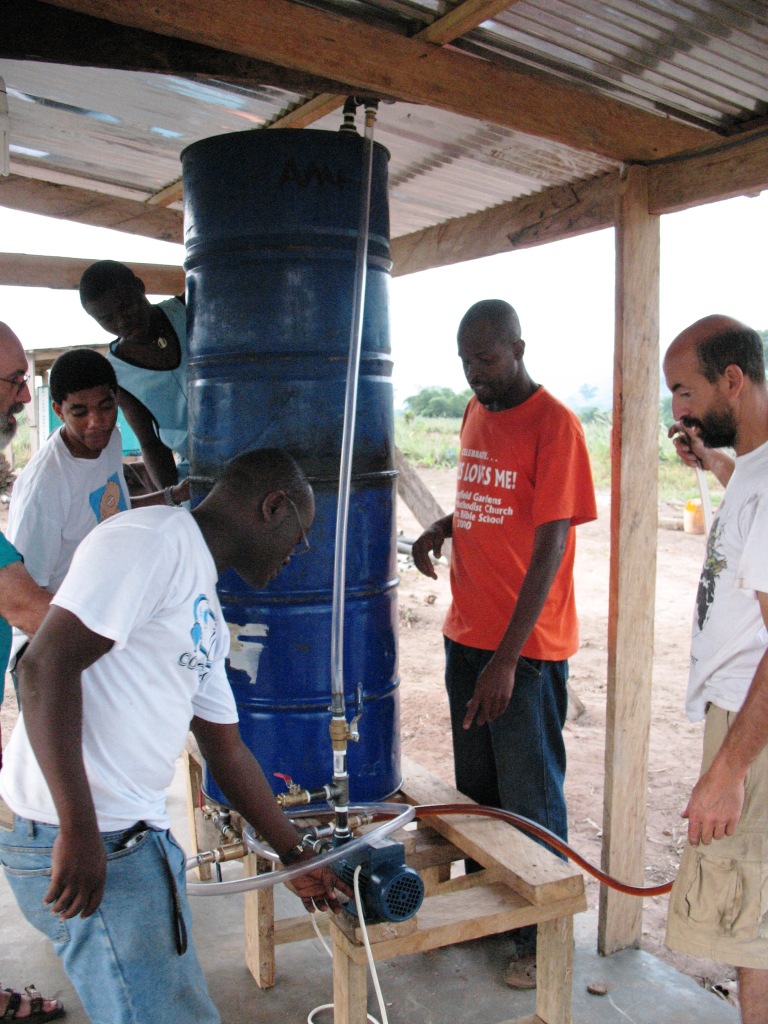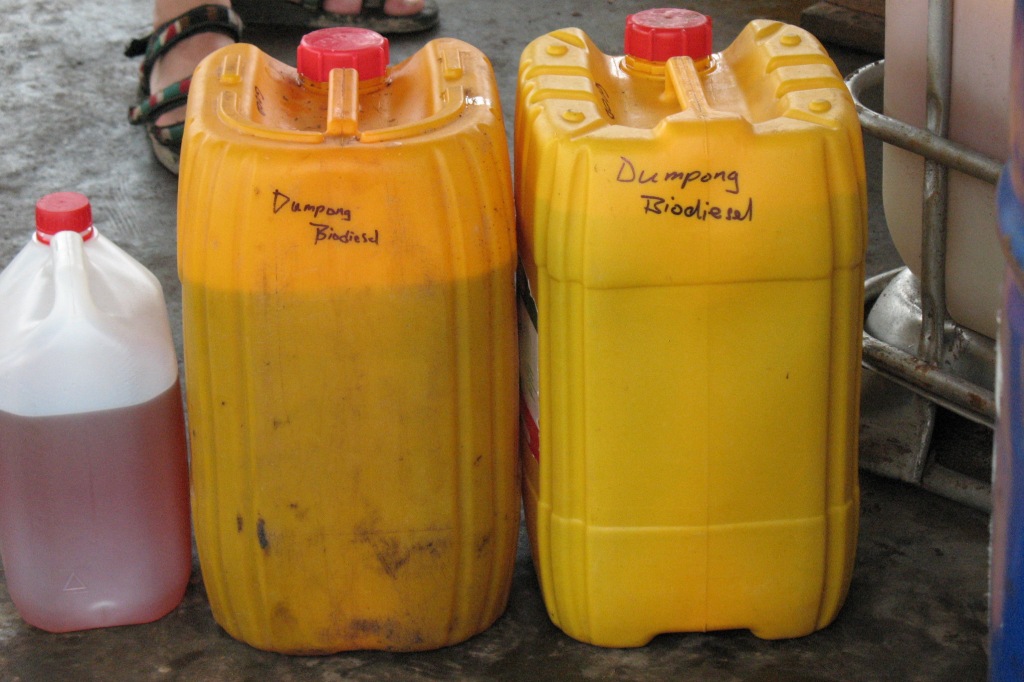|
Press Release 07/03/2007
Community based Biodiesel production begins in Ghana

Dumpong Biofuels, in collaboration with the Dumpong Pineapple
Growers Cooperative, has begun producing biodiesel in Ghana from palm
kernel oil. On July 2, 2007, a team from
Dumpong Biofuels assembled a simple processor to convert locally produced palm
kernel oil into biodiesel, a substitute for imported petroleum diesel fuel. Biodiesel can be made from any vegetable oil
crop by a process called transesterification which removes the glycerin
molecule from the oil creating fatty acid methyl esters. Biodiesel is more environmentally friendly
than petroleum diesel and significantly reduces exhaust emissions.
The biodiesel processor was built on the farm of Frank
Aidoo, president of the Dumpong Pineapple Growers, in
Dumpong, located in Eastern Region. The processor
comprises two 200 liter steel drums welded together with an electric
heating element screwed through one opening.
Additional piping and a small electric pump were added to pump palm
kernel oil and a solution of methanol with potassium hydroxide into the
processor, then circulate the mixture and finally pump the biodiesel into a
washing tank.

The processor was built over two days and production began
immediately. Over the next three days
550 liters of golden biodiesel was produced which has already been used to power
a generator and to fuel the farm’s vehicles.
After the palm oil is processed into biodiesel it is washed to remove
any impurities or unconverted reagents.
It is then ready to be used as a substitute for diesel fuel. Due to the solvency quality of biodiesel it
must initially be blended with diesel fuel as it works to clean the fuel system
of the vehicle. Fuel filters will need to
be changed at the start but biodiesel will actually clean the fuel system to
make the vehicle perform more efficiently. Biodiesel can be mixed with diesel fuel in any
proportion and there is no modification to the engine to use this fuel.
The palm kernel oil was sourced from a neighboring village
where palm kernel nuts are cracked to extract the palm nut. The palm nut is then crushed and boiled over
a fire of palm kernel husks to separate the palm oil, which is then gathered
and stored. The palm oil used for
biodiesel is not further refined.
Some biodiesel will be used to power a generator that
currently pumps water for a small sachet water (bottling) plant that provides
clean drinking water. Frank plans to use
this new fuel source to allow him to pump water to a storage tank in the nearby
village to eliminate the current practice of sourcing water from a nearby stream.
Dumpong Biofuels strategy is to take advantage of locally
available oilseed crops, to included jatropha and sunflower seed, to
convert into an environmentally renewable and sustainable fuel to be used
locally to replace imported and dirty diesel fuel. The cost for making
biodiesel is approximately 25% less than the current price for diesel fuel. By working with community based palm oil processors
and with local labor this project brings additional income to and quality of
life improvements to the local villages.

|